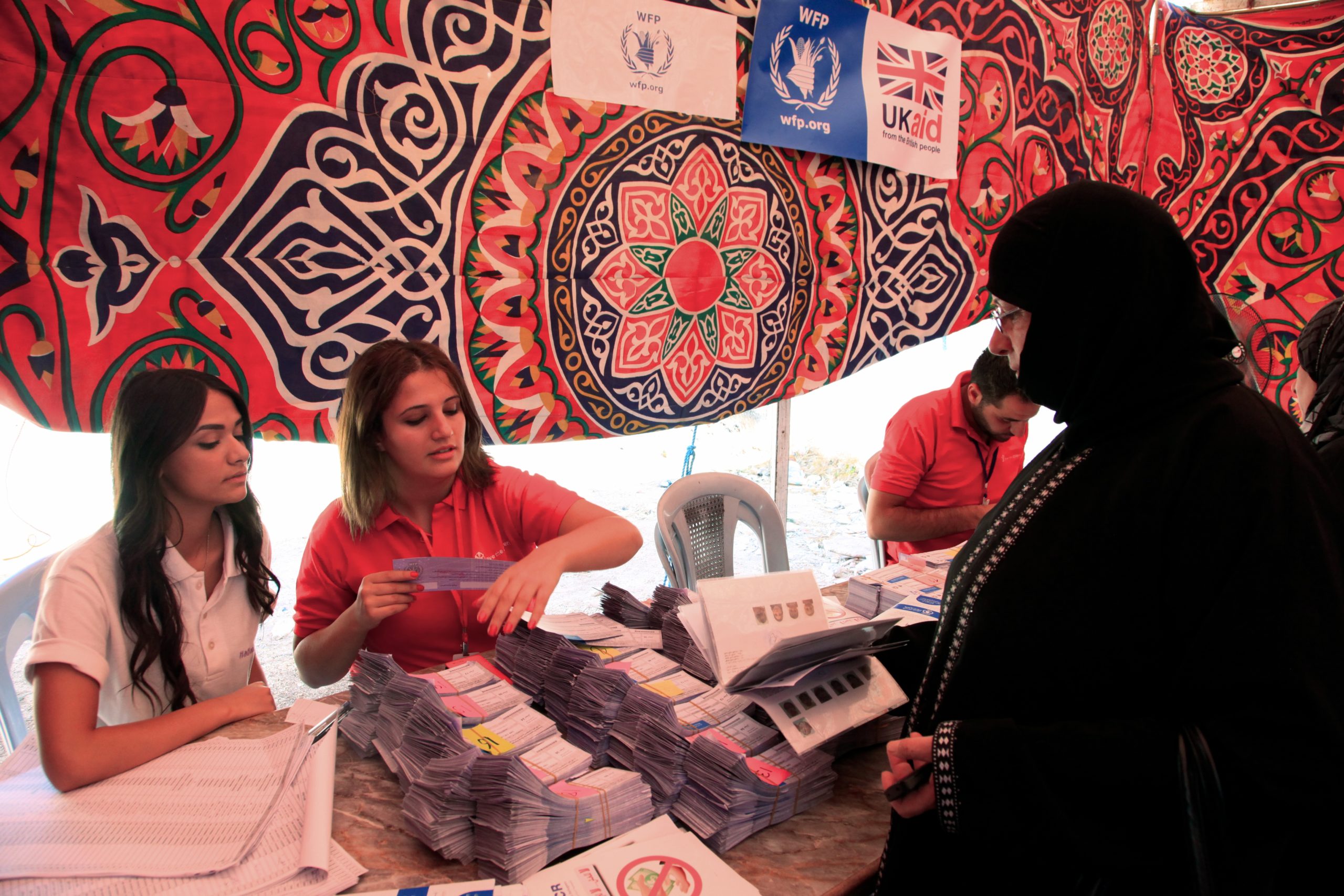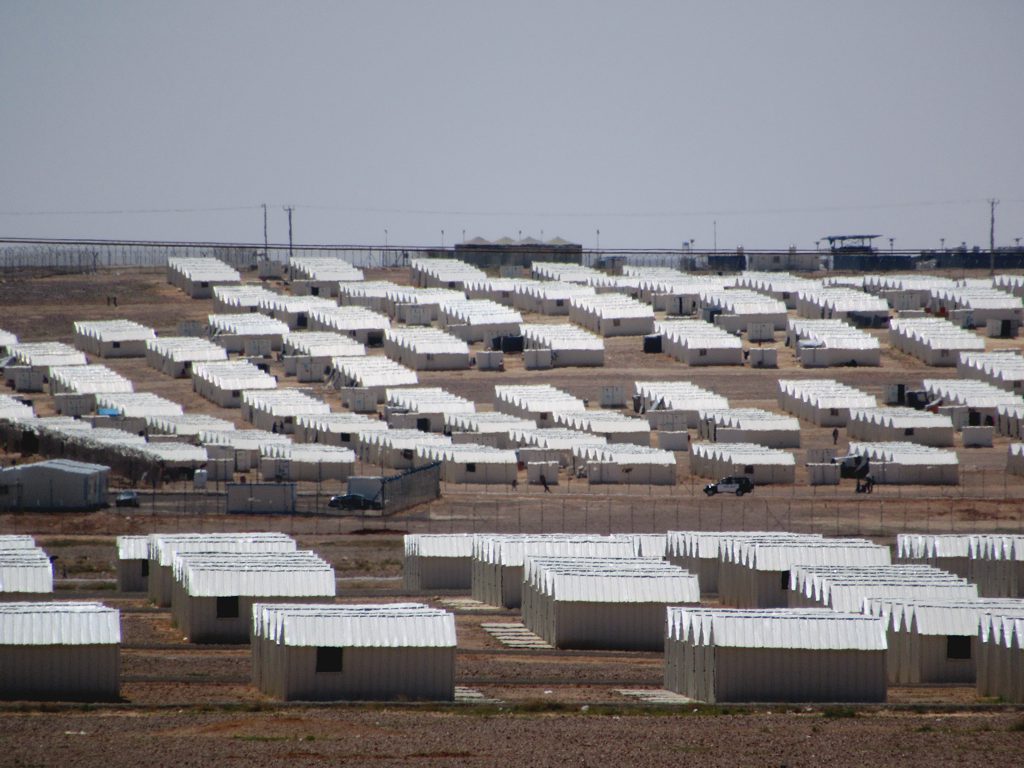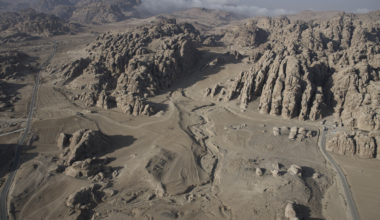
By Dr Gerasimos Tsourapas, CBRL Pilot Study recipient and Senior Lecturer at the University of Birmingham.
One of the most striking things about the Syrian refugee crisis is that Middle Eastern countries have been affected by the inflow of displaced persons much more than their Western counterparts. Jordan, Lebanon, and Turkey are currently hosting over 5 million Syrian refugees; fewer than the 1 million Syrians that reside within the European Union member-states. At the same time, a wealth of resources has been dedicated to understanding Western responses to forced migration – from humanitarian, legal, socio-economic, as well as political perspectives. In sharp contrast, we currently lack a concrete framework of explaining how refugee crises affect “host states of first asylum,” such as Jordan, Lebanon, and Turkey.
My research project in Amman, generously funded by a CBRL Pilot Study grant, aimed at understanding Jordanian responses to Syrian displacement, and contextualising them within Jordan’s broader socio-economic and political context. By comparing Jordanian policies on forced migration with similar strategies developed by Lebanon and Turkey, I identified the emergence of a new type of state — “a refugee rentier state.” In a refugee rentier state, those in positions of economic or political authority adopt policies that extract revenue from other state or non-state actors in exchange for retaining refugee groups within its borders. Seeking to benefit from increasing Western fears of mass refugee inflows, certain host states are increasingly able to use their position to secure unearned external income — “refugee rent.”

Examples of states engaging in refugee-rent-seeking behaviour across the world abound. Turkey was able to secure an unprecedented sum of €6 billion in 2016, as well as other concessions, in return for keeping Syrian refugees within its borders. In 2010, the European Union agreed to pay Libya €50 million after Moammar Gaddafiʼs threat to “turn Europe black” otherwise. Ethiopia negotiated a $500 million aid packet this year in light of its status as a host state of almost 1 million refugees. Manus Island and Nauru received more than $5 billion from Australia between 2012 and 2018 to continue serving as offshore processing centres for asylum seekers — an astronomical sum, considering Nauruʼs annual gross domestic product is $114 million. Lebanon forged a €400 million partnership with the European Union in 2016, aiming to address living conditions for Syrian refugees as well as Lebanese citizens – annual gross domestic product is $114 million. Lebanon forged a €400 million partnership with the EU in 2016, aiming to address living conditions for Syrian refugees as well as Lebanese citizens.
My research in the case of Jordan identified a similar policy in which elites sought international assistance via appeals to international law and the protection of human rights. Overall, Jordan espoused a welcoming policy towards Syrian refugees and hosts over 600,000 Syrians currently registered with the UN Refugee Agency UNHCR (unofficial figures put the estimate much higher). The royal family and state ministers have made repeated calls for international economic aid, but never suggested that they would force Syrians out. “In a country of 6.6 million Jordanians, we have opened our doors to 1.3 million Syrians,” Queen Rania said at the 2016 UN summit on refugees and migrants, adding that “it cannot fall to the countries closest to the conflicts to shoulder this responsibility alone.”
Jordan’s refugee rent seeking strategy culminated in the Jordan Compact, an agreement drafted in February 2016 within the context of a London Pledging Summit. The Summit’s main objective was the creation of 200,000 employment opportunities for Syrians within the country over a three-to-five-year period. Jordan also agreed to lift regulatory barriers in allowing refugees to work within the country and to lower work permit charges for those seeking low-skilled work from 700 Jordanian dinars to ten Jordanian dinars. Most ambitiously (and controversially), the Jordan Compact promised to turn “the Syrian refugee crisis into a development opportunity.”
Why is refugee rent seeking behaviour important? International trends suggest this is a strategy that refugee host states will continue to employ, as part of their migration diplomacy strategies. Western states’ traditional reluctance toward hosting migrants and refugees has grown exponentially across both sides of the Atlantic. It feeds into “out of sight, out of mind” policies that reward host states of first asylum for serving as buffer zones against asylum seekers — from the Middle East and North Africa to Mexico. Refugee rent is then distributed in order to prevent refugee flows from reaching the Global North.

This emerging global shift toward the commodification of forced migration is not lost on host states, particularly those that have decades worth of experience in managing forced displacement that, for Lebanon and Jordan, span back to post-1948 Palestinian refugee influxes. At the same time, research I have conducted with Fiona Adamson identifies a broader shift towards neoliberal forms of migration management, in which states strategically use population mobility as a means of generating revenue across the Global South. A few weeks after the 2016 EU-Turkey deal, Kenya’s national security head threatened to close the Dadaab refugee camp, one of the largest in the world, saying the West had been getting away with it “on the cheap.” Looking back at how they dealt with the Syrian refugee crisis, a Jordanian official said that “we should have blackmailed the EU like Turkey did.”
But the use of migrants as political leverage is no longer limited to the Global South. In 2015, Greek Foreign Minister Nikos Kotzias said that if Greece was forced out of the euro zone, “there will be tens of millions of immigrants and thousands of jihadists” flooding Western Europe.
My research in Jordan suggests that the rise of refugee rentierism is intricately linked to power politics. It is necessary that students, scholars, and policymakers take forced migration into account — not necessarily as weapons in terms of “newwars” but as instruments of diplomatic negotiations and leverage, as part and parcel of the international system.
Gerasimos Tsourapas is a Senior Lecturer in Middle East Politics at the School of Government, University of Birmingham. His research focuses on the politics of migrants, refugees, and diasporas in the broader Middle East. His first book is entitled The Politics of Migration in Modern Egypt: Strategies for Regime Survival in Autocracies (Cambridge University Press, 2019). Dr. Tsourapas currently sits on the Executive Committee of the Ethnicity, Nationalism, and Migration Studies Section of the International Studies Association. He is also a founding member of the British International Studies Association (BISA) working group titled “International Politics of Migration, Refugees, and Diasporas.” Dr. Tsourapas has published in leading academic journals, including International Studies Quarterly, International Migration Review, Third World Quarterly, International Political Science Review, and the Journal of Ethnic & Migration Studies.
The views expressed by our authors on the CBRL blog are not necessarily endorsed by CBRL but are commended as contributing to public debate.














